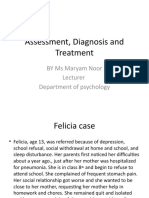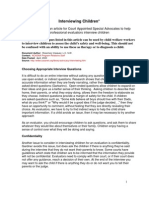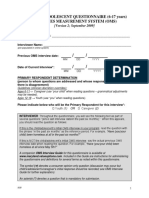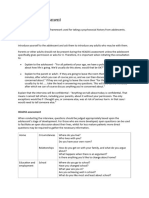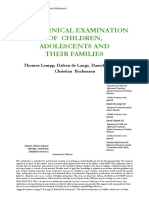0% found this document useful (0 votes)
58 views6 pagesChild Interview Assignment - Removed
This is my assignment of child interview in child psychiatrist
Uploaded by
AlinaCopyright
© © All Rights Reserved
We take content rights seriously. If you suspect this is your content, claim it here.
Available Formats
Download as PDF, TXT or read online on Scribd
0% found this document useful (0 votes)
58 views6 pagesChild Interview Assignment - Removed
This is my assignment of child interview in child psychiatrist
Uploaded by
AlinaCopyright
© © All Rights Reserved
We take content rights seriously. If you suspect this is your content, claim it here.
Available Formats
Download as PDF, TXT or read online on Scribd
/ 6



